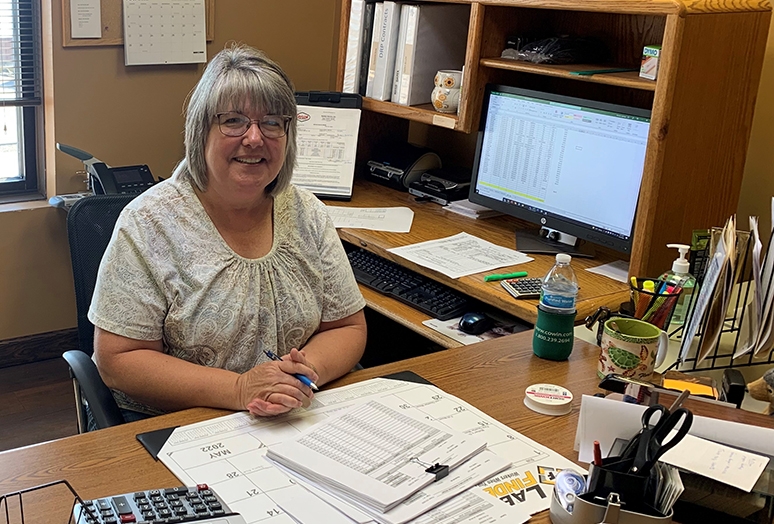
The Moral of This Story Is ‘Ask the Question’
August 2022 — There’s got to be a better way.
That was pretty much the consensus for the customer service representatives (CSRs) at Watco’s Decatur River Port terminal when it came to tracking inbound and outbound shipments. That is, until Tammy Springer took on the task of improving things.
In particular, it was the process for entering purchase order (P.O.) numbers into the warehouse management software that bothered Springer and the other CSR there, Angela Chappell.
The method was laborious. As the two received information on inbound product, they would type that into a spreadsheet. When it was time to create outbound paperwork, they would rekey or copy and paste information from the spreadsheet into the proper fields.
The team at Decatur, on the Tennessee River in northern Alabama, handles mostly natural sand and large steel coils that arrive by barge or train and leave mostly by truck. “Some barges contain 70 or 80 coils,” said Chappell. In a busy week, Decatur River Port might average 22 inbound coils a day, each with its own coil number and corresponding purchase order (P.O.) number. That made for a lot of data entry.
“All of our customers want that P.O. number that goes with the coil on the outbound paperwork,” Chappell continued. “I’ve had to type (each coil’s P.O. number) in each spot on the bill of lading (BOL). So that’s an hour or two just looking up P.O. numbers.”
Springer, a 12-year veteran at Decatur who trained Chappell, decided to pursue a more automated approach. “Tammy took it upon herself to reach out to figure out a solution,” says Terminal Manager Donnie Gunter. She sought out Mikayla Widick, director of materials systems, who works in the Overland Park, Kansas, office and helps with the ongoing administration of warehouse management software for Watco. “Between the two of them,” says Gunter, “they were able to make the spreadsheet populate the correct fields on the bill of lading. They worked together to get the issue resolved. It took Tammy wanting to fix the issue but needed Mikayla help to fix it. This will save the CSRs a lot of time trying to find the numbers to type into boxes on the bills of lading.”
Besides the P.O. number, the software is now pulling the customer number and item description into the correct fields on bills of lading as the team builds loads on outbound shipments.
“The change I made took all of 10 minutes,” said Widick. “So the important part is that Tammy thought to ask the question. Every terminal does things differently, so without them bringing things like this up, we’d never know they were spending any time (let alone a lot of time) on something as tedious but easy to fix as that. So a key takeaway from Tammy’s story, I think, is to ask the question!”
Chappell agrees. “If it wasn’t for Tammy speaking up, we’d still be taking 1½ to 2 hours out of our days creating orders to go out. It’s half that time now. It has made our lives so much easier.”